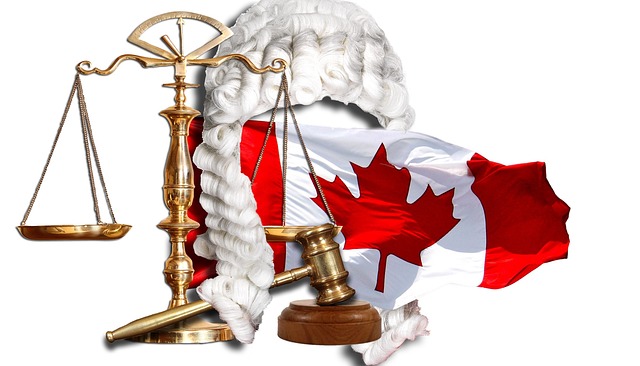In the complex healthcare industry, navigating regulatory compliance is crucial. Healthcare experts interpret and apply regulations, ensuring smooth operations, risk mitigation, and legal/ethical adherence. They resolve disputes from non-compliance, billing issues, or ethical dilemmas, using a multidisciplinary approach. Effective communication is vital for understanding legal jargon and managing high-stakes cases, including real estate disputes. These experts stay informed about legislative changes and enhance organizational accountability through training. Case studies and expert witnesses support efficient dispute resolution, avoiding costly litigation. Understanding how to resolve real estate disputes requires proactive navigation of intricate regulations and open dialogue.
In the intricate landscape of healthcare, compliance is a vital thread weaving patient safety, legal adherence, and operational efficiency. This article explores the indispensable role of healthcare compliance experts in navigating complex regulations. We delve into identifying common disputes, strategic communication approaches for resolution, and the legal implications that underpin best practices. By examining real-world case studies, we offer insights on how to effectively resolve healthcare disputes, ensuring patient centricity and operational integrity.
- Understanding Healthcare Compliance: The Role of Experts
- Identifying Common Disputes in Healthcare Settings
- Strategies for Effective Communication and Resolution
- Legal Implications and Best Practices for Compliance
- Case Studies: Successful Dispute Resolution in Healthcare
Understanding Healthcare Compliance: The Role of Experts

In the complex landscape of healthcare, ensuring compliance with an ever-evolving array of regulations is a challenging task for any organization. This is where healthcare compliance experts come into play, serving as navigators in this intricate web of rules and standards. Their expertise lies in interpreting these regulations and applying them to specific scenarios, thereby facilitating smooth operations while mitigating risks. These professionals are instrumental in protecting not only the interests of healthcare providers but also the well-being of patients.
By leveraging their unprecedented track record and deep knowledge, they offer valuable insights tailored to individual organizations’ needs. Whether dealing with corporate or individual clients, these experts ensure adherence to legal requirements, ethical standards, and industry best practices. Their role extends beyond compliance; they foster a culture of integrity within healthcare institutions and contribute to the overall health of philanthropic and political communities by upholding high standards in patient care and data privacy.
Identifying Common Disputes in Healthcare Settings

In healthcare settings, identifying common disputes is a critical step towards ensuring smooth operations and patient safety. These disputes often arise from regulatory non-compliance, billing issues, or ethical dilemmas. For instance, navigating complex rules regarding patient records, medication dispensation, and insurance claims can lead to misunderstandings that require expert intervention. Moreover, white collar and economic crimes within healthcare organizations, such as fraud and embezzlement, pose significant challenges that demand sophisticated strategies for how to resolve real estate disputes.
Effective resolution of these disputes involves a combination of legal expertise, regulatory knowledge, and strong communication skills. Healthcare compliance experts play a pivotal role in crafting winning challenging defense verdicts by facilitating open dialogue, providing clear guidance on respective business practices, and ensuring adherence to evolving industry standards. They help organizations navigate the intricate web of regulations, thereby minimizing potential liabilities and fostering a culture of ethical conduct and operational transparency.
Strategies for Effective Communication and Resolution

In the realm of healthcare compliance, effective communication is key to successfully navigating complex regulatory landscapes. Professionals must be adept at translating legal jargon into understandable terms for clients and stakeholders. This involves clear documentation, regular updates, and open dialogue, especially during investigations or audits. A strategic approach to communication can significantly impact the outcome of high-stakes cases, such as those involving white collar and economic crimes, where a winning challenging defense verdict could mean the difference between financial ruin and recovery.
Embracing proactive measures is crucial for resolving real estate disputes that often arise in healthcare settings. Experts should initiate open conversations with clients to identify potential issues early on. By fostering an environment of transparency, they can address concerns promptly, mitigating risks before they escalate. This proactive communication not only strengthens relationships but also enhances the chances of reaching favorable outcomes, particularly in intricate cases where meticulous documentation and a strong defense strategy are paramount.
Legal Implications and Best Practices for Compliance

Healthcare compliance experts play a pivotal role in ensuring that medical institutions adhere to intricate legal frameworks, which is essential for avoiding severe legal repercussions and financial losses. When navigating complex regulations, these professionals must possess a deep understanding of how to resolve real estate disputes that may arise within healthcare settings, such as those involving property acquisition or lease agreements. By implementing best practices, they can mitigate risks effectively.
One of the key strategies is staying abreast of legislative changes and industry updates, as these can significantly impact compliance requirements. Additionally, fostering open communication channels between healthcare providers, administrators, and legal teams fosters a proactive approach to compliance. This collaborative effort enables early identification and resolution of potential issues, including those related to patient data privacy or medication management. Furthermore, regular training sessions and workshops for staff can enhance their knowledge of ethical practices and legal implications, fostering a culture of accountability within the healthcare organization, especially in high-stakes cases involving the philanthropic and political communities.
Case Studies: Successful Dispute Resolution in Healthcare

When it comes to resolving healthcare disputes, case studies offer valuable insights into successful strategies employed by experts. These real-world scenarios showcase how skilled professionals navigate complex issues and protect their clients’ interests. For instance, many cases involve interpreting and enforcing compliance regulations, which are vital for maintaining ethical practices in the healthcare industry. By examining these instances, one can learn effective tactics to avoid costly jury trials across the country.
Expert witnesses play a pivotal role in this process. They bring specialized knowledge to bear on legal matters, offering unbiased analysis of regulatory non-compliance and its potential impact. Through meticulous documentation and strategic presentations, these experts help attorneys build compelling arguments, ensuring their clients’ rights are upheld. This approach has proven successful in numerous cases, leading to favorable resolutions without the need for extensive litigation.
Healthcare compliance experts play a pivotal role in navigating complex regulations, ensuring organizations stay legally sound. By understanding common disputes and implementing effective communication strategies, healthcare facilities can foster a culture of compliance. This article has provided insights into the legal implications and best practices, along with real-world case studies, offering a comprehensive guide for resolving healthcare disputes efficiently. Adopting these strategies can help organizations maintain high standards, protect their reputation, and promote patient satisfaction in an ever-evolving regulatory landscape.






